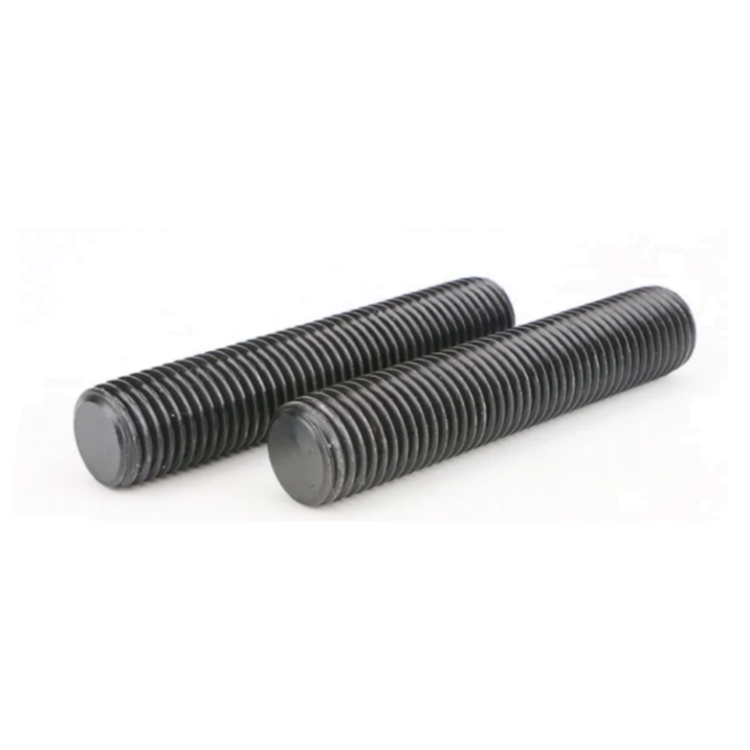Stud Bolt Manufacturing Standards in Compliance with ASTM A193 Specifications
Dec . 07, 2024 10:27 Back to list
Stud Bolt Manufacturing Standards in Compliance with ASTM A193 Specifications
Understanding Stud Bolt Manufacturing ASTM A193 Standards and Factories
Stud bolts are essential components in many industries, providing robust fastening solutions for various applications, including construction, oil and gas, power generation, and chemical processing. These fasteners, often categorized by their specific standards, play a critical role in ensuring structural integrity and safety in various assemblies. One of the most widely recognized standards for stud bolts is ASTM A193, which outlines the specifications for alloy and stainless steel bolting materials used in high-temperature or high-pressure applications.
What is ASTM A193?
ASTM A193 was developed by the ASTM International, a renowned organization that sets technical standards for a wide range of materials and products. The A193 standard covers various grades of alloy and stainless-steel stud bolts, specifically designed for use in extreme environments, such as high-pressure and high-temperature settings. The standard defines the chemical composition, mechanical properties, and tensile strength requirements necessary for various applications.
The standard categorizes several grades of stud bolts, including
- Grade B7 This is one of the most common grades, particularly used in subsea and oil and gas applications. It has high tensile strength and is made from alloy steel. - Grade B8 This grade consists of stainless steel, which offers excellent corrosion resistance, making it suitable for chemical processing applications. - Grade B8M This grade includes higher amounts of nickel and is designed for use in environments where there is a risk of stress corrosion cracking.
Manufacturing Processes
Factories that produce ASTM A193 stud bolts employ various manufacturing processes to meet stringent quality and safety standards. These processes generally include
1. Material Selection The first step begins with selecting high-quality raw materials that meet ASTM specifications. For instance, Grade B7 requires specific alloy compositions to achieve desired strength and ductility.
2. Forging The selected raw materials are often forged to shape. This process enhances the mechanical properties of the metal, resulting in improved strength and reduced porosity. Forged studs exhibit fewer defects than cast studs, making them more reliable for critical applications.
stud bolt astm a193 factories

3. Threading After the bolts are forged, they undergo threading processes. The precision of the threading is crucial as it affects how well the fastener will fit into a nut and the overall integrity of the joint.
4. Heat Treatment Heat treatment is an essential step in enhancing the strength and toughness of the stud bolts. Different grades require specific heat treatment processes to achieve the desired mechanical properties.
5. Surface Treatment To improve corrosion resistance, especially for stainless-steel grades, surface treatments such as passivation or coating may be applied.
6. Quality Control Rigorous testing and quality assurance procedures are vital throughout the manufacturing process. Factories must conduct various tests, including tensile strength tests, hardness tests, and non-destructive testing to ensure that each batch of stud bolts meets the ASTM A193 specifications.
Global Manufacturing Landscape
The manufacturing of stud bolts compliant with ASTM A193 is a global industry with factories located in various regions around the world. Countries with robust industrial sectors, such as the United States, China, Germany, and India, are prominent players in this market. These factories must maintain compliance with both ASTM standards and local regulations, emphasizing the importance of quality in the global supply chain.
In recent years, the industry has also seen a push toward sustainable manufacturing practices. Many factories are investing in cleaner technologies and more efficient processes to reduce their environmental impact while maintaining product quality.
Conclusion
Stud bolts manufactured according to ASTM A193 standards are integral components in numerous sectors, ensuring safe and reliable connections in high-pressure and high-temperature applications. The rigorous manufacturing processes involved, combined with strict quality control measures, make these fasteners indispensable for maintaining the integrity of critical infrastructure around the world. As the demand for durable and reliable fasteners continues to grow, the significance of adhering to established standards like ASTM A193 remains paramount in the manufacturing landscape.
Latest news
-
High-Quality Panel Stud Bolt Reliable Panel Stud Bolt Factory & Suppliers
NewsJul.08,2025
-
High-Precision Fine Thread Locknuts Manufacturer & Supplier Custom Solutions
NewsJul.08,2025
-
PH Imperial Stud Bolt – High Strength Fasteners from Leading Supplier & Factory
NewsJul.07,2025
-
High-Quality Allen Wrench Bolts Leading Factory, Company & Suppliers
NewsJul.07,2025
-
Wholesale Ball Stud Bolt - High Quality Supplier & Factory Price Reliable Wholesale Ball Stud Bolt Company
NewsJul.06,2025
-
High-Strength Alloy Bolts Manufacturer & Supplier Quality Alloy Fasteners Factory
NewsJul.06,2025
